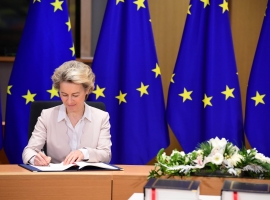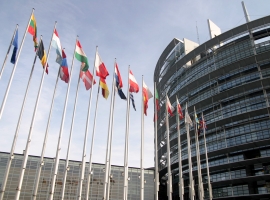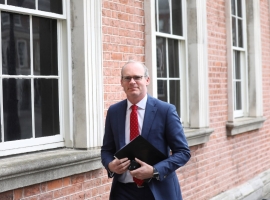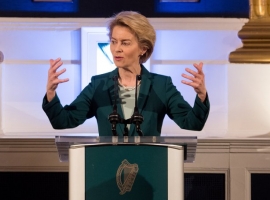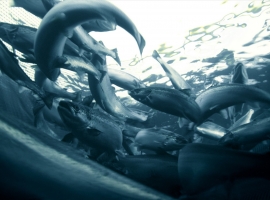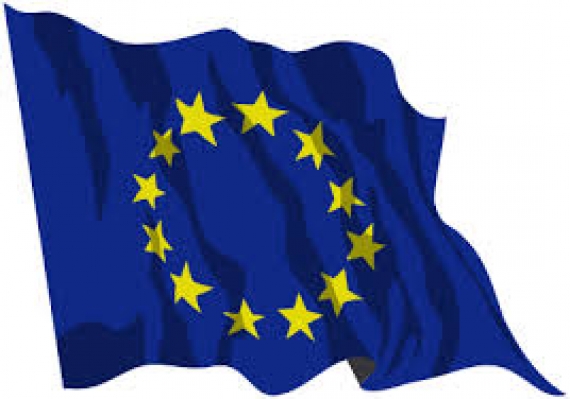
Senior officials from Britain's EU partners gather next week to coordinate plans for looming Brexit negotiations with Prime Minister Theresa May - but they can do little in detail until London works out what it wants.
Michel Barnier, the French former minister who will lead the negotiations for the European Commission, will host Tuesday's follow up on meetings in Brussels last week with the 27 other member states which several officials and diplomats involved said have revealed a striking degree of unity.
The main aim has been to clarify the kind of structures the EU will need for negotiating once May delivers a letter -- she says by late March -- to trigger withdrawal under Article 50 of the EU treaty.
But Brussels officials stress that until May's ministers agree among themselves what it is they realistically want, little can be said on the detail of the process. Barnier aims to deliver a consensus outline of the EU's view in a month or two.
"It's not easy to check for the moment what the British interest is really," the conservative leader in the European Parliament, Manfred Weber, said this week after a brief first meeting with May's Brexit negotiator David Davis.
Davis also met Barnier but insisted he would not reveal what he would ask for. That has left EU negotiators preparing for, effectively, three different sets of talks, which will have to run at times in parallel:
First, there must be a withdrawal treaty, which should be completed within two years. It should divide up budget claims, agree the status of EU and British citizens living on either side of a new EU-UK border, agree how to manage the new land frontier in Ireland, and deal with outstanding cases involving Britain the EU courts.
Second, during the two years, negotiators will try to settle what relationship will exist after, say, April 1, 2019. Some of this may involve a third stage on a bigger new treaty relationship that many believe will take many more years.
For most, actual negotiations on this third stage should not start until Britain is formally out of the EU. However, in order to work out the second, transitional, deal, the two sides will have to have some idea what the final relationship should be.
"We need to define the transition, and which elements need to be in the divorce and which in the new relationship," a senior EU official involved in the process said. "The whole issue of bridges and transitions will be pretty tricky. If you want to avoid disruption this will be the key point."
Responding to concerns from business that economic ties could be disrupted if Britain's falls off a "cliff edge" in 2019 with no agreed new relationship with the EU and a legal limbo, May said this week she hoped to avoid that -- her strongest signal she would be ready to look at a transitional arrangement.
But that has left EU officials no closer to imagining what that might look like.
"If there is political understanding of what the future relationship will be, we can define what the transitional deal will be. But if we have no idea, it won't work," another senior EU official said.
If all London wants is free trade with the bloc, the transition could be very simple, designed mainly to avoid imposing tariffs on goods that would later be scrapped. If it wants more, then the transition will have to be more complex.
Many Brussels officials question whether the apparently simple option of Britain initially remaining, like Norway, in the European Economic Area after Brexit would be politically viable for May. She would have to explain to voters why she had not ended free immigration from the EU or EU court oversight.
Negotiators in Brussels are also keen to remind Britons that they cannot take for granted negotiations will follow a predictable course. Both sides recognize a risk that they might never get off the ground if May presents unfeasible demands -- that would put Britain on course for a bumpy, sharp exit.
Dutch Finance Minister Jeroen Dijsselbloem, who also runs euro zone affairs, told the BBC this month that some British leaders, including Foreign Secretary Boris Johnson, were misleading people in suggesting Britain could retain much of the economic benefit of ties to the continent while quitting the EU.
"He's saying things that are intellectually impossible, politically unavailable," Dijsselbloem said, reflecting a broad view on the continent that Britain must be held to tough terms if the already battered Union is not to face further desertions.
In another BBC interview, Maltese Prime Minister Joseph Muscat, whose country will chair EU ministerial meetings next year, said on Friday: "We want a fair deal for the UK but that kind of fair deal can't translate itself into a superior deal."
One EU official with a senior role in preparing negotiations said he was surprised Britain's traditional Nordic, Polish and Dutch allies had not emerged as "fifth column" lobbying for a "soft Brexit" to appease British concerns on immigration while letting it keep free trade access to avoid hurting EU economies.
In a report on Friday that was publicized on Twitter by Finland's Anglophile former prime minister Alexander Stubb, the country's EVA business forum warned that cutting Britain an easy deal would undermine the Union as a whole and must be avoided. (Reuters)
Source: www.businessworld.ie


